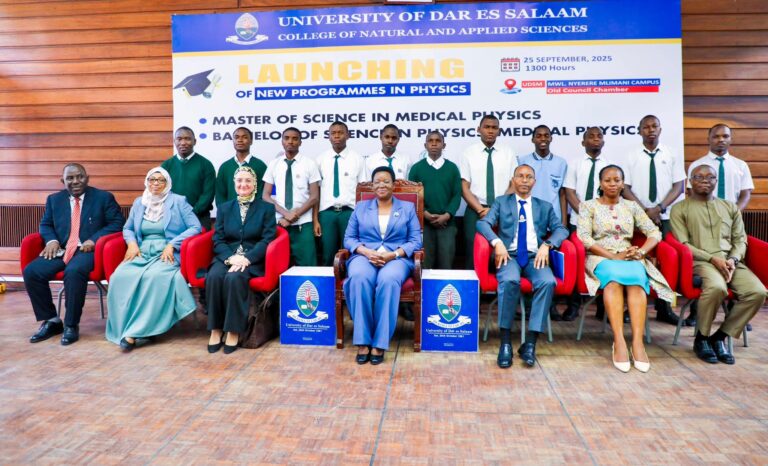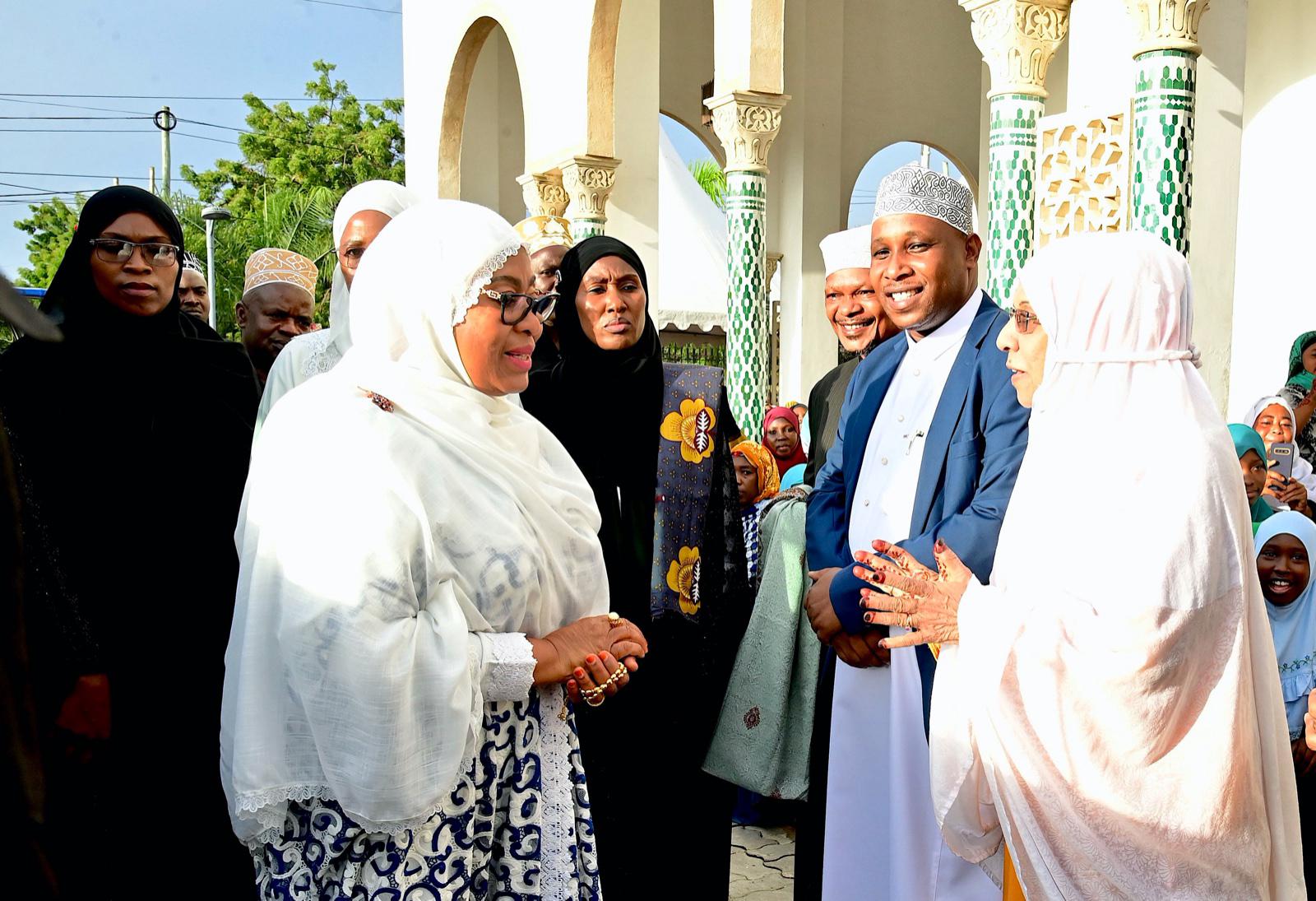Dar es Salaam. Tanzania has launched its first-ever academic programmes in medical physics as part of a broader national effort to strengthen cancer diagnosis and treatment through nuclear technology.
The new undergraduate and master’s degree programmes; Bachelor of Science in Medical Physics and Master of Science in Medical Physics; were officially launched at the University of Dar es Salaam (UDSM) over the weekend by the Permanent Secretary in the Ministry of Education, Science and Technology, Prof Carolyne Ignatus Nombo.
Prof Nombo said the initiative marks a milestone in the country’s partnership with the International Atomic Energy Agency (IAEA), which has supported training for Tanzanian professionals in nuclear science and technology abroad. She noted that such cooperation has significantly contributed to the growth of the sector domestically.
“These new programmes will train experts capable of delivering medical services and safely operating nuclear technology equipment used in diagnosis and treatment,” she said.
Students enrolled in the programmes will undergo practical training at the Ocean Road Cancer Institute (ORCI) in Dar es Salaam, giving them hands-on experience in clinical environments. Until now, Tanzanian students seeking training in medical physics had to study abroad in countries such as Ghana, South Africa, Egypt, and Italy.
The Director General of the Tanzania Atomic Energy Commission (TAEC), Prof Najat Kassim Mohammed, said the government continues to invest in cancer treatment services to meet growing demand.
“Currently, two public hospitals provide oncology services, while four others are in various stages of development to offer similar services. This expansion has increased the demand for qualified medical physicists in the country,” she said, adding that TAEC will work closely with UDSM, ORCI, and the IAEA to ensure successful implementation of the new academic programmes.
UDSM Deputy Vice Chancellor for Research, Prof Nelson Boniface, said the launch of the programmes comes at a crucial time as the university reviews its academic offerings to align with national and global needs.
“The introduction of medical physics reflects UDSM’s commitment to advancing science and addressing emerging health challenges through research and innovation,” he said.
Ocean Road Cancer Institute Executive Director, Dr Diwani Msemo, described the new programmes as a timely intervention that will help improve service delivery and accelerate Tanzania’s progress in nuclear medicine and health sciences.
Meanwhile, Tanzania has received an international report evaluating its cancer control efforts.
The report, compiled by experts from the IAEA, the World Health Organization (WHO), and the International Agency for Research on Cancer (IARC), was presented to the Permanent Secretary in the Ministry of Health, Dr Seif Shekalaghe, in Dar es Salaam.
The assessment, conducted by 17 international experts, reviewed Tanzania’s progress in cancer diagnosis and treatment through visits to key institutions, including Benjamin Mkapa Hospital in Dodoma, Bugando Medical Centre in Mwanza, Besta Cancer Diagnosis and Treatment Hospital, Ocean Road Cancer Institute, and Mnazi Mmoja Hospital in Zanzibar.
Dr Shekalaghe commended the mission team for their work and underscored the importance of aligning their recommendations with Tanzania’s health realities. He expressed optimism that the findings would strengthen the country’s ongoing reforms and guide the formulation of a new national cancer control strategy.
The IAEA mission leader, Mr Karagu Maina, praised Tanzania’s progress, citing increased government investment in oncology infrastructure, modern diagnostic equipment, and the training of professionals abroad.
He noted that the last such assessment was conducted in 2006, and that the new report would serve as a strategic framework for guiding cancer care development in the coming years.







